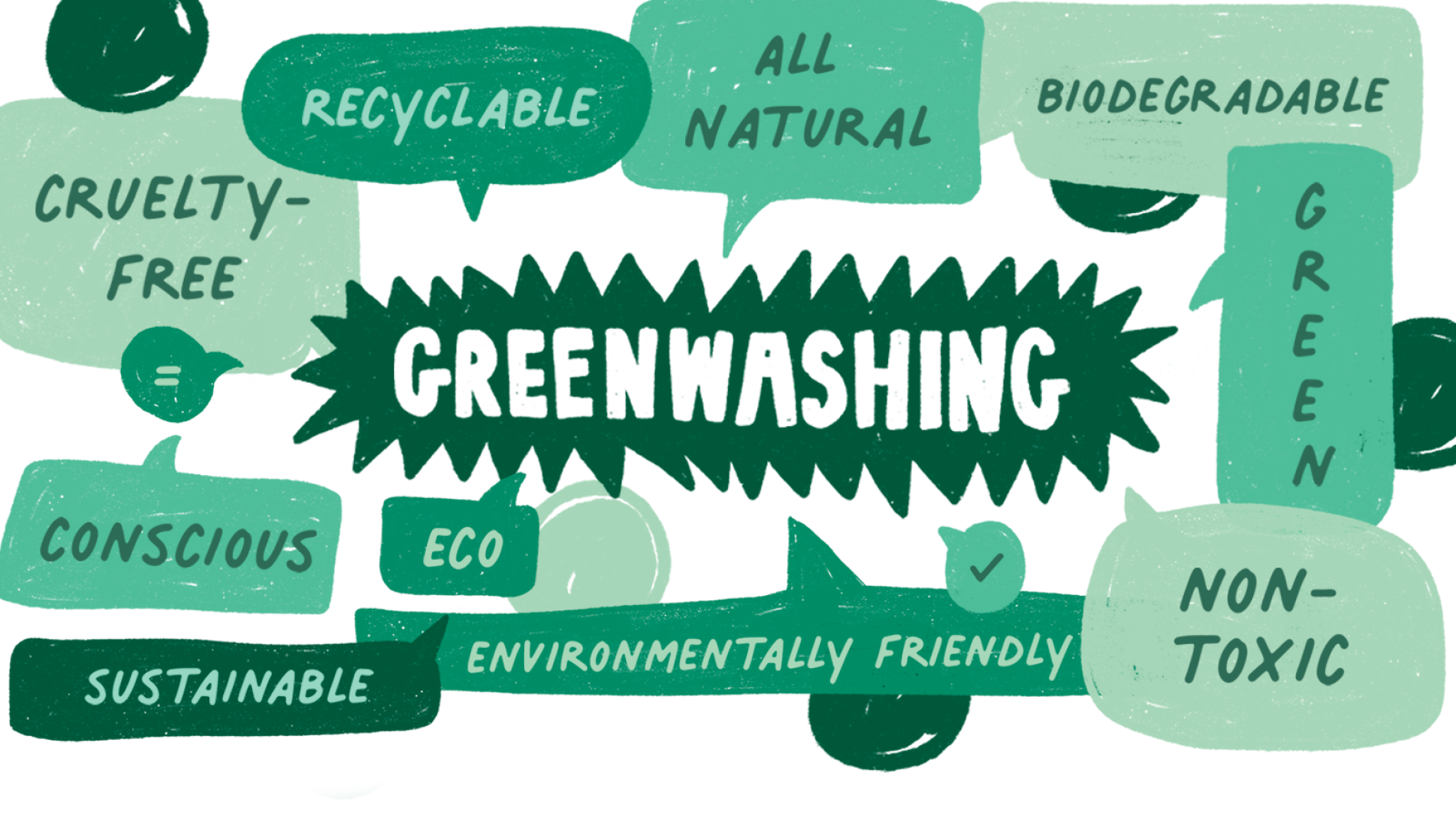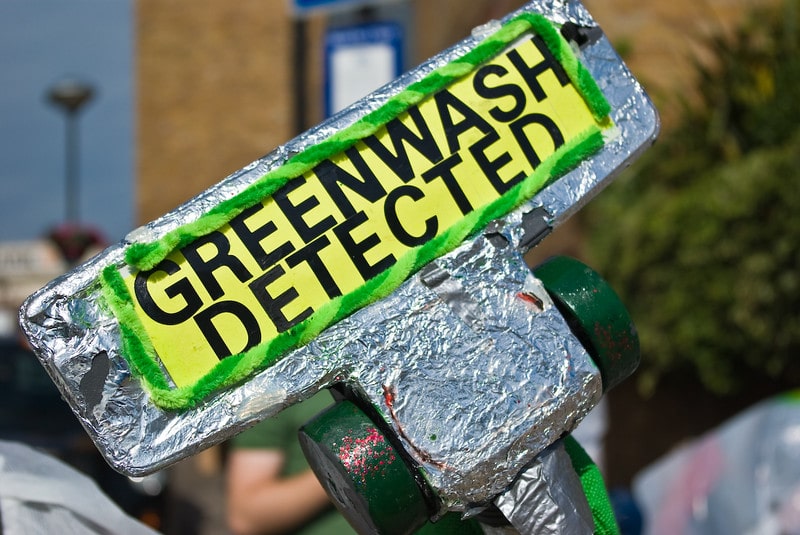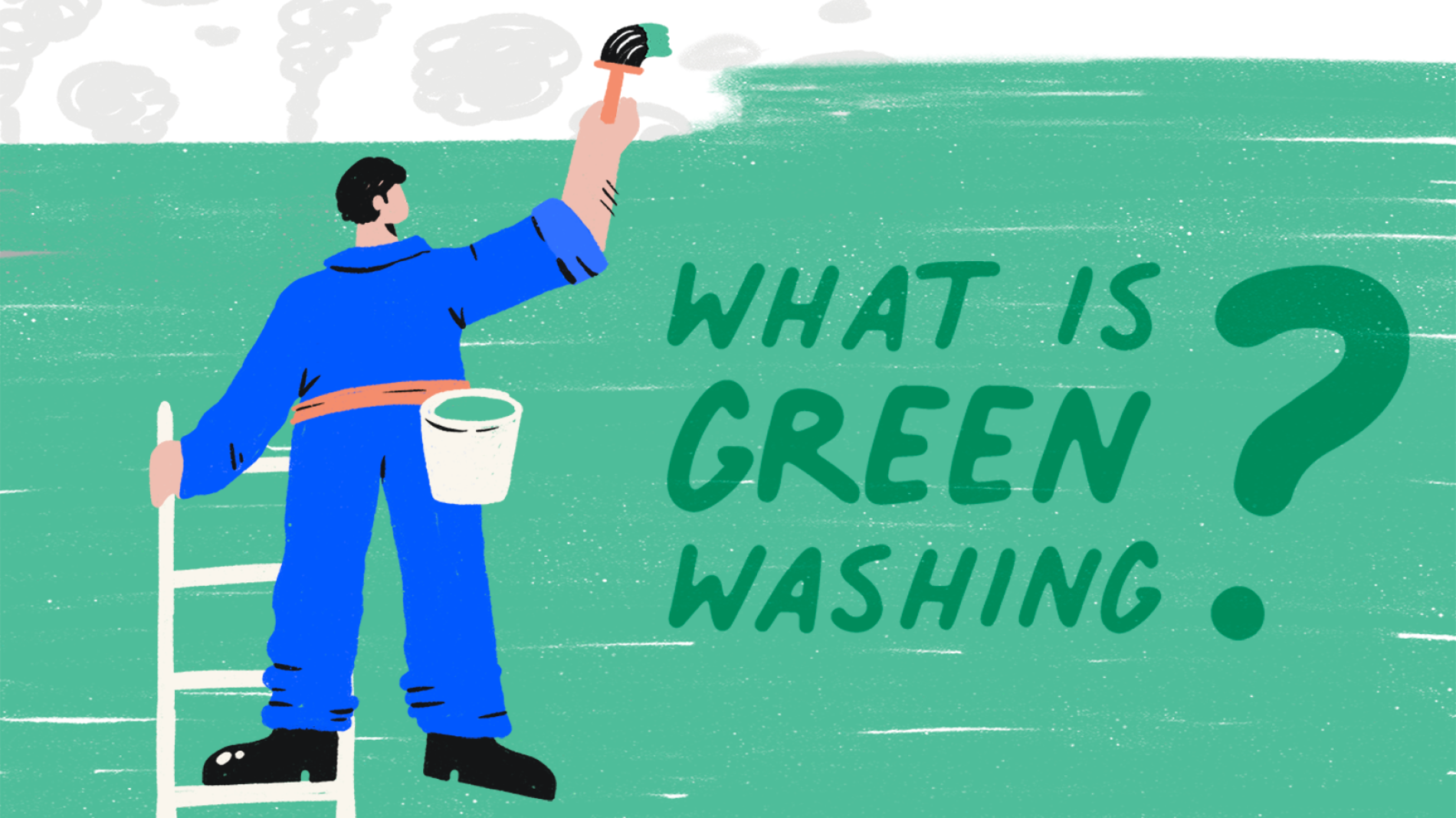In the recent times, with an increase in the emphasis on environmentally conscious ways of living, many companies have come up with environmentally sound alternatives to commonly used products. While most of these efforts are extremely important and genuine, there are also numerous other companies that try to market their products by using terms related to sustainability such as, ‘eco-friendly‘, ‘biodegradable‘, ‘organic‘, and the like on their labels. This is called greenwashing.
Greenwashing is a marketing strategy used to attract consumers and increase profit margin through false claims of environmental soundness. Here, the seller tries to deceive the customer by peddling an unsubstantiated promise that the product is sustainable and less harmful for the environment.

The pervasive nature of greenwashing
The term greenwashing was coined by renowned environmentalist Jay Westerveld in a 1986 essay in which he claimed that the hotel industry uses the strategy of convincing consumers to reuse towels for environmental benefits and uses it as a smokescreen to save its laundry cost.
However, the origin of the term dates back to the 60s, when America’s gigantic electrical company Westinghouse was threatened by the anti-nuclear movement. Concerns were raised about the safety and environmental impact of various nuclear technologies and the company responded by broadcasting a series of advertisements demonstrating the safety and cleanliness of nuclear plants.
Products are greenwashed by renaming, rebranding and repackaging them, which portrays products to be more wholesome, naturally procured, sustainably manufactured, organic and environment friendly, which attracts consumers and creates a positive image for the brand by marketing it as environmentally responsible
Advertisers and marketers play with the psyche of the consumers by greenwashing their brands and convincing consumers to believe in the eco-friendliness of their products. This creates a positive perception of that particular product and in turn increases the profit and goodwill of the company.
According to a survey in 2013, majority of the Indian customers prefer to purchase products on the basis of their environmental impacts and sustainability. The saod global online environment and sustainability survey by Nielsen cutes, “The Indian consumer is increasingly conscious of the benefits of environmentally friendly and sustainable practices… 86 per cent Indian consumers surveyed place faith in energy efficient products and appliances, followed by recyclable packaging 79 per cent.”

Monique Goyenes, Director General at BUEC, The European Consumer Organisation, an umbrella consumers’ group founded in 1962, explained in an interview with the BBC, “Greenwashing is everywhere, the number of consumer goods and services that claim to be sustainable or eco-friendly or carbon neutral has exploded. There has been this awareness which is raised now and is developing every year that we need to do something for the planet and so this raised awareness by the consumers is attractive for the marketers because then they can promote greener products and there are truly sustainable products that are out in the market but there is a huge confusion between the the truly green products and the greenwashed ones.”
In 2017, Terrachoice, a private marketing and environmental consulting agency developed and launched the seven sins of greenwashing to help consumers develop cognisance about the misleading environmental claims demonstrated by a company about their products. The most evident form of greenwashing is what they call ‘sin of the hidden trade-off’, which refers to a situation when a company puts more emphasis on one narrow environmental action which is relatively minor, but hide or do not disclose the impact of the other damaging aspects of it.
Also read: Greenwashing: When Brands Pretend To Care About The Environment
For instance, like in the previously mentioned example, while the hotel industry encouraged consumers to reuse towels by projecting the environmental benefits, there were no efforts to reduce their energy consumption or improve sustainability in operations.
Products are greenwashed by renaming, rebranding and repackaging them, which portrays products to be more wholesome, naturally procured, sustainably manufactured, organic and environment friendly, which attracts consumers and creates a positive image for the brand by marketing it as environmentally responsible.
If you come across jargon on labels such as ‘sustainable’, ‘socially responsible’, ‘eco-friendly’, etc. do not assume them to be true, but look for the certifications to ensure the claims are substantiated. Ecolabels on the product, which might include badges of approval (in India) from the Food Safety and Standards Authority of India (FSSAI), International Organisation for Standardisation (ISO), Ecomark , a voluntary eco-label that certifies environmentally safe consumer products. Greenpro, a product certification granted by the Confederation of Indian Industry, India Organic, a labeling standard developed by the Government of India granted to organically farmed food, and the like, help consumers to verify the sustainability claims of the company. These certifications clarify that a product has met a specific criteria and international standards

The other sins of greenwashing include: the sin of no proof which refers to an environmental claim which is not supported by easily accessible information or third-party confirmation, the sin of vagueness which means the environmental claims of a product are so vaguely described that the consumer may misconstrue the meaning to assume it is sustainable, the sin of worshipping false labels where fake claims of third-party endorsements are made, the sin of irrelevance where the claim made may be true but irrelevant to the said product, the sin of lesser two evils where the claims in the particular product category may be true but overlooks the larger damage of the category as a whole, and the sin of fibbing where the claims are altogather false.
How to differentiate between greenwashed products and genuine products?
Not all companies use greenwashing to market thel sustainability of their products. There are numerous initiatives that mindfully manufacture and sell products which are genuine and true to their claims. Such companies keep their promise of transparency and are specific about the environmentally beneficial attributes of their products.

If you come across jargon on labels such as ‘sustainable’, ‘socially responsible’, ‘eco-friendly’, etc. do not assume them to be true, but look for the certifications to ensure the claims are substantiated. Ecolabels on the product, which might include badges of approval (in India) from the Food Safety and Standards Authority of India (FSSAI), International Organisation for Standardisation (ISO), Ecomark , a voluntary eco-label that certifies environmentally safe consumer products. Greenpro, a product certification granted by the Confederation of Indian Industry, India Organic, a labeling standard developed by the Government of India granted to organically farmed food, and the like, help consumers to verify the sustainability claims of the company. These certifications clarify that a product has met a specific criteria and international standards.
However, if there is an ecolabel which you are unable to recognise or do not believe to be credible, the same can be cross checked digitally. Websites like ecolabel index, track 455 eco labels across 199 countries. Such portals also function as aggregators that explain the meaning underlying each ecolabel, the process behind certification and what kinds of products are labeled with it.
Also read: Your T-shirt Is Made Of Plastic
As of now, there are no laws in India that specifically address greenwashing. The Indian courts have ruled against making fake and misleading claims in some cases of comparative advertising to hold producers accountable.
Featured Image: SpunOut
About the author(s)
Ishita is a student of Political Science (Honors) at Kamla Nehru college, Delhi University. In the world of patriarchy, she is not someone who is afraid to voice out her beliefs and speak up for them. Though mostly cheerful and friendly she is very particular about her deadlines and perfection in her chores





